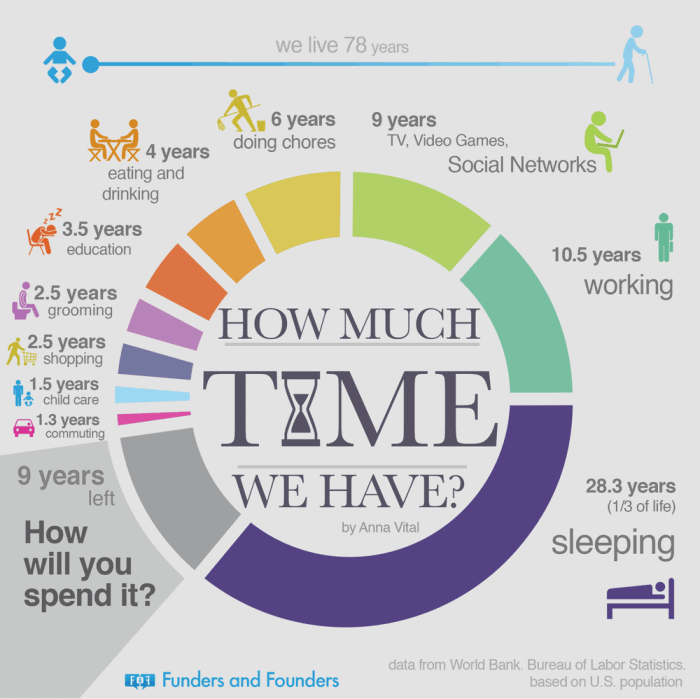“Words can be twisted into any shape. Promises can be made to lull the heart and seduce the soul. In the final analysis, words mean nothing.
They are labels we give things in an effort to wrap our puny little brains around their underlying natures,
when ninety-nine percent of the time the totality of the reality is an entirely different beast.
The wisest man is the silent one. Examine his actions. Judge him by them.”
―
Continuing with the theme of cognitive biases, the upcoming election has me thinking about the consequences of labeling things, creating boxes, and simplifying ideas into news-ready headlines.
With more news sources than ever and less attention span, you see ideas packaged into attention-grabbing parts. The focus isn't on education or the issues, but on getting the click, making your stay on their page longer, and sending you to a new article utterly unrelated to why you clicked on the page.
Complex issues are simplified – not even into their most basic forms – but instead into their most divisive forms ... because there's no money in the middle.
The amplified voices are those on the fringe of the average constituents' beliefs – precisely because those are the ones who are often the most outspoken. We might think that because they're the voices we hear, these fringe messages fairly represent what people like us believe or think ... but they rarely do.
Issues that should be bipartisan have been made "us" versus "them," "liberal" versus "conservative," or "right" versus "wrong." The algorithms many of our information sites use create echo chambers that increase radicalization and decrease comprehension.
Identity politics have gotten so strong that you see families breaking apart and friend groups disintegrating ... because people can't imagine sharing a room with someone with whom they don't share the same values.
In psychology, heuristics are mental models that help you make decisions easier. They're a starting point to save mental bandwidth, allowing you to spend more brain cycles on the important stuff.
That's a great use of "boxes" and "simplification"… but it shouldn't eliminate deeper and more nuanced thought on important issues.
Most situations are nuanced, and the "correct" answer changes as you change your vantage point.
In an ideal world, we'd consider every angle. I recognize that's not realistic.
Instead, I encourage you to remember to continue to think and learn ... even about things you already know. And, if you become familiar with the most common cognitive biases, you can hopefully identify them in your thinking and decision-making.
Confirmation Bias is one of the more common forms of cognitive bias. Here is an infographic that lists 50 common cognitive biases. Click to explore further.
via VisualCapitalist
Important issues deserve more research. New insights happen between the boundaries of what we know and don't. Knowledge comes from truly understanding the border between what you are certain and uncertain about.
I challenge you to look beyond the headlines, slogans, and talking points you like most. Look for dissenting opinions and understand what's driving their dissent. Are they really blind or dumb (or are their value systems just weighted differently)?
Not everything needs to be boxed. Not everything needs to be simple. You should explore things and people outside of your comfort zone and look to see things from their point of view ... not your own.
Recently, I've started using a website and news app called Ground News. They claim to be a news platform that makes it easy to compare news sources, read between the lines of media bias, and break free from algorithms.
As discussed above, online news and ad-driven algorithms have made it profitable for news outlets to embrace a position on the bias spectrum to target specific consumers. That bias in the media affects everything from what events receive coverage to how a news outlet frames those events in their reporting.
As media outlets narrow their perspective and range of coverage, I use Ground to help me get a well-rounded view of important issues and become aware of my blind spots.
Applying This Lesson
“I am ashamed to think how easily we capitulate to badges and names, to large societies and dead institutions.”
― Self-Reliance
I love learning a lesson in one space and applying it to other spaces. It's one of the cool things about AI. An algorithm can learn rules in the construction space that may help in the medicine or trading space. Everything's a lesson if you let it be.
In that vein, the lesson on labeling also applies to yourself and your business. Don't get me wrong - naming things is powerful. It can help make the intangible tangible. However, don't let the label (or your perception of the label) stop you from achieving something greater.
Many things are true because we believe them to be, but when we let go of past beliefs, the impossible becomes possible, and the invisible becomes visible.
Hope that helps.


Buying a Computer in 1994 ...
We take for granted a lot of the technology we have today. Computers and phones have evolved so fast that it's hard to remember that they haven't been around for many years.
When my youngest son was born in 1993, cassette tapes and the Sony Walkman were popular. I had a brick-sized phone hardwired into my car, and we had a Macintosh-II in the study.
Here is a throwback picture showcasing the cool tech we had back then.
Everything in that photo now exists in the cheapest of smartphones. And the features and functions available now far exceed my wildest expectations back then.
For a blast from the past and a look back at what used to be top-of-the-line ... here's a video of people buying a computer in 1994.
via David Hoffman
Video transfer and playback. 160-megabyte hard drive. 32 megahertz. All for the low price of $2,000.
I can remember back further than 1993, because I'm old enough that I didn't have my first computer until after I graduated college. My first Macintosh had floppy disks measured in K, not megs or gigs. For context, my first job out of school was at a law firm where the only people who used computers were in the typing pool. And when I said I wanted a computer, the lawyers said "No!" because it would look bad.
It's pretty cool to see how far we've come!
Still, someday soon, they will look back at the tech we have now as "primitive" and "quaint".
I can't wait!
Posted at 06:00 PM in Admin, Business, Current Affairs, Film, Gadgets, Ideas, Just for Fun, Market Commentary, Science, Trading Tools, Web/Tech | Permalink | Comments (0)
Reblog (0)